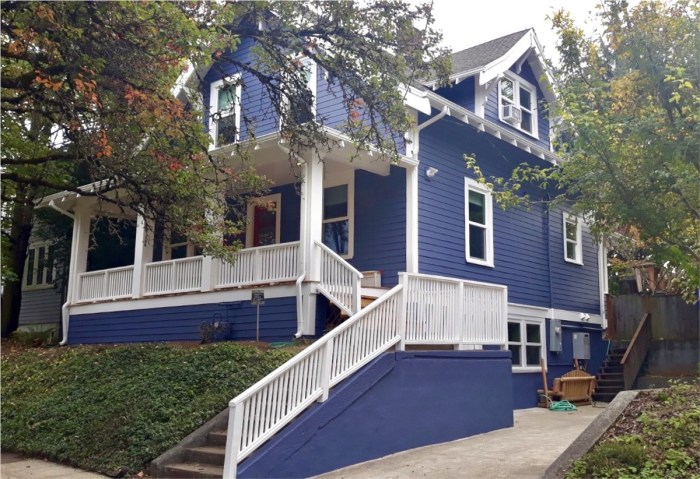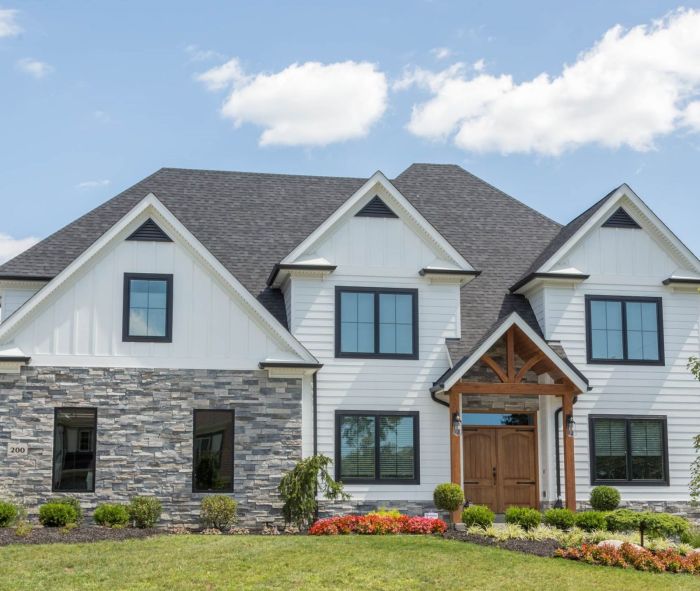Choosing the Best Portland Siding Replacement: A Comprehensive Guide
Embarking on the journey of Portland siding replacement opens up a world of possibilities, each offering unique advantages and considerations. From durable vinyl to classic wood, this guide delves into the various materials and factors to consider when replacing your siding.
As you navigate through the options and decisions ahead, you'll gain valuable insights to make the best choice for your home.
Types of Portland siding replacement options

When it comes to replacing siding in Portland, there are several options to choose from. Each type of siding material has its own set of pros and cons, along with specific durability and maintenance requirements. Let's take a closer look at the most common types of siding used for replacement in Portland.
Vinyl Siding
Vinyl siding is a popular choice for its affordability and low maintenance requirements. It is available in a variety of colors and styles, making it a versatile option for homeowners. However, vinyl siding may not be as durable as other materials and can crack or fade over time.
Wood Siding
Wood siding offers a classic and natural look that many homeowners appreciate. It can be painted or stained to match the aesthetic of the home. While wood siding is durable, it requires more maintenance than other materials, such as regular painting and sealing to protect it from the elements.
Fiber Cement Siding
Fiber cement siding is known for its durability and resistance to rot, insects, and fire. It can mimic the look of wood or stucco but requires less maintenance. However, fiber cement siding can be more expensive upfront compared to other materials.
Metal Siding
Metal siding, such as steel or aluminum, is a durable option that can withstand harsh weather conditions. It is low maintenance and comes in a variety of colors and styles. However, metal siding can dent easily and may not offer the same level of insulation as other materials.Consider the specific needs of your home and your budget when choosing the right siding material for replacement in Portland.
Each type of siding has its own advantages and drawbacks, so it's important to weigh your options carefully before making a decision.
Factors to consider before replacing siding in Portland

When considering replacing siding in Portland, there are several important factors to take into account to ensure the best outcome for your home. From climate considerations to assessing the current condition of your siding, these factors will help you make an informed decision for your replacement project.
Climate Considerations in Portland
Portland experiences a mild, rainy climate with relatively moderate temperatures throughout the year. This means that your siding needs to be able to withstand moisture and protect your home from the elements. Choosing a siding material that is durable and water-resistant is essential in ensuring its longevity in Portland's unique climate.
Assessing the Current Condition of Siding
Before replacing your siding, it's important to assess the current condition of your existing siding. Look for signs of damage such as rot, mold, warping, or peeling paint. These issues can indicate that your siding is no longer providing adequate protection for your home and needs to be replaced.
Hiring a professional inspector to evaluate the condition of your siding can help determine the extent of the damage and the best course of action for replacement.
Importance of Energy Efficiency and Insulation
When choosing new siding for your home in Portland, it's crucial to consider the energy efficiency and insulation properties of the materials. Proper insulation can help regulate the temperature inside your home, reducing energy costs and making your living space more comfortable year-round.
Additionally, energy-efficient siding can help lower your carbon footprint and contribute to a more sustainable living environment. Be sure to choose siding materials that offer good insulation properties to maximize energy efficiency in your home.
Hiring a contractor for Portland siding replacement
When it comes to replacing siding in Portland, hiring a reputable contractor is crucial to ensure the job is done correctly and efficiently. Here are some steps to find the right siding contractor in Portland.
Steps to find a reputable siding contractor in Portland:
- Ask for recommendations from friends, family, or neighbors who have had siding replacement done.
- Research online for local siding contractors with positive reviews and ratings.
- Check with the Better Business Bureau to see if there are any complaints against the contractor.
Importance of checking licenses, insurance, and references before hiring:
Before hiring a siding contractor, it is essential to verify that they have the necessary licenses and insurance to perform the work. This protects you as a homeowner in case of any accidents or damages during the project. Additionally, checking references can give you insight into the contractor's work quality and reliability.
Benefits of getting multiple quotes for siding replacement projects:
- Allows you to compare pricing and services offered by different contractors.
- Helps you find the best value for your budget and project requirements.
- Encourages contractors to provide competitive pricing and quality workmanship.
Permits and regulations for siding replacement in Portland
When it comes to replacing siding in Portland, it is essential to be aware of the permits and regulations that govern such projects. Failure to comply with local building codes can result in penalties and delays, so understanding the requirements is crucial.
Permits Required for Siding Replacement
- In Portland, a building permit is typically required for siding replacement projects.
- Permits ensure that the work meets safety standards and zoning regulations.
- Before starting the project, it is important to check with the local building department to determine the specific permit requirements.
Specific Regulations and Restrictions
- Portland may have specific regulations regarding the type of siding materials that can be used.
- There may also be restrictions on the colors and finishes allowed for siding in certain neighborhoods or historic districts.
- It is important to research and adhere to these regulations to avoid any issues during or after the replacement project.
Consequences of Not Following Building Codes
- Failure to follow local building codes for siding replacement can result in fines, stop-work orders, or having to redo the work to meet standards.
- Non-compliance with regulations can also lead to legal issues and challenges when selling the property in the future.
- By ensuring that the siding replacement project complies with all permits and regulations, homeowners can avoid costly mistakes and ensure the longevity of their investment.
End of Discussion
In conclusion, Portland siding replacement is a significant investment that can enhance both the aesthetics and functionality of your property. By understanding the different materials, assessing your needs, and choosing a reputable contractor, you can embark on this renovation journey with confidence.
Quick FAQs
What are the most common types of siding materials used in Portland for replacement?
Vinyl, wood, fiber cement, and metal are popular choices for siding replacement in Portland.
How do I find a reputable siding contractor in Portland?
Look for contractors with proper licenses, insurance, and positive references from past clients to ensure quality work.
Are there specific regulations or restrictions in Portland regarding siding replacement?
Permits are required for siding replacement in Portland, and it's crucial to follow local building codes to avoid consequences.




